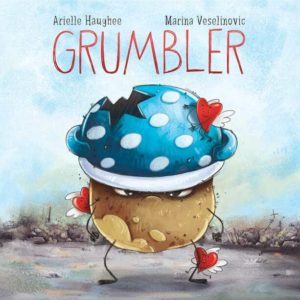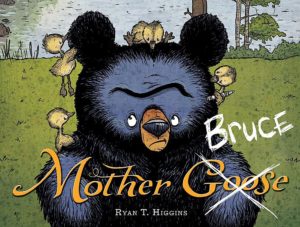
Market research is an essential step of the book creation process no matter how you publish. It is basically seeing what is already out there in the market and how your book will (or will not) fit in. Luckily for us, we live in the age of Amazon so you don’t have to spend hours at a book store picking through different titles. If you are working to be published traditionally, you will often have to list what are called “comps,” or comparable titles, in your query letter. If you are self-publishing, you will need to know how to promote your book. For both of these, you need to complete market research.
What To Look For
Start your market research by finding comparable titles published within the last five years that are the same genre and a similar story line. The recency of titles is important, as you want information about the current market, not what sold well ten or twenty years ago. Find at least five books similar to yours that are moderate to top selling. A quick note about using comps in query letters—it is considered arrogant to list a mega best selling book as a comp. I always analyze the best of the best for my own research purposes, however. If you are going traditional, you will also want to make sure you are looking up traditionally published books for comparisons.
Here is an example of a comp for one of my own books:


Grumbler is a grumpy character who keeps getting love stuck to him and (spoiler alert) goes through a transformation. For people who are not in the kids’ book industry, I tell them it is similar to The Grinch so they get the gist of the story. It’s not a good comparable book for market research, though, because of how long ago it was published. Industry standards have changed since then. My favorite, best selling comp is Mother Bruce. It’s about a grumpy bear who gets stuck with a bunch of goslings who think he is their mom. After trying to get rid of them, he goes through a transformation. This book was only four years old when mine was published, it’s in the same genre, and a similar story. Great comp.
What Details To Get From Book Comps
Comps are a wealth of information for all kinds of things. So once you have your list, keep those titles handy. Here are some of the most helpful things I get from comp titles:
- Word or page count – This is especially helpful for my children’s books. They will also list reading levels, too.
- Description and back cover blurb – You can mine some gold here. Look at the language they use to craft a description for a top seller. Pick out which types of details make you want to read the book. Also, compare how the description on Amazon is different from the blurb on the back of the book.
- Cover design patterns – A MUST DO if you are self-publishing. Readers have certain expectations for certain genres (like romance). Take a look at my comp. I modeled my cover after this book and several others starring grumpy characters. See how they are similar?
- Categories – This will help you figure out how to pitch your book to agents and editors if you are going traditional. For indie, this is something you will choose during publishing.
Differentiating Your Title From Book Comps
The most important thing to take away from market research is not just about how your book can fit in and sell, but how it can stand out. How is your title different from what is already out there? What is your new twist on the story/information? You are trying to spot a hole in the market that your book will fill. For Grumbler, there were a lot of books featuring grumpy characters who become nice. And I mean A LOT. So I knew it was something people enjoyed that would sell. My book is different because love itself is represented as little heart characters that get stuck to him, and every time he tries to give them away, they come back even more. There is a hidden angle in there about how love grows the most when it is shared. That’s not in the other books.
Another great trick for getting your title to stand out or fill a gap in the market is to—steel yourself—read the negative reviews of your comps. Is there something more or different people wanted from the story? For nonfiction, was something missing or left out? You can use this information during the revision process to add in or adjust your book so that it meets those needs.
When To Do Market Research
There are two different school of thought as to when you should complete market research. Some say you should do this before you write one word of your book. Others counter that it can hinder the creative process. For nonfiction books, I agree that you should explore the market before you start writing. That way you can determine what angle your book will have that is different. For fiction, I personally think you should focus only on writing your story when you begin. You can always revise later and make necessary adjustments. You may not even need to change your story, just figure out what to emphasize when marketing.
As you can see, market research is a very valuable tool for anyone wanting to publish a book, traditionally or indie. Don’t be deterred or intimidated by having to look for books similar to yours. There are multitudes of similar books on the market for a reason. People buy more of what they enjoy. Your job is to figure out how yours will be similar but offer something new and different. Then you will be 100% prepared to tackle that market.

Chris Coward
I tried to “Like” this post, but my click went somewhere in cyberspace. Excellent explanation. Thank you!
Arielle Haughee
Thank you, Chris! I appreciate your support. <3
Raymond w David
It was very helpful, many thanks.
Arielle Haughee
Thank you for reading!
Danielle Cook
Once again, an excellent article! I especially appreciate the advice to use more recent comp titles.
Arielle Haughee
Thank you so much, Danielle! I am glad you found it helpful.
darlene
Thank you, Arielle!! Great info. xo
Arielle Haughee
Thank YOU, Darlene, for always being so supportive!
ken pelham
Great advice, Arielle!
I gotta say, GRUMBLER looks like a book that should be on everyone’s shopping list of books for the little ones.
Arielle Haughee
Thank you, Ken! That particular book is “my baby.” A lot of love went into it!